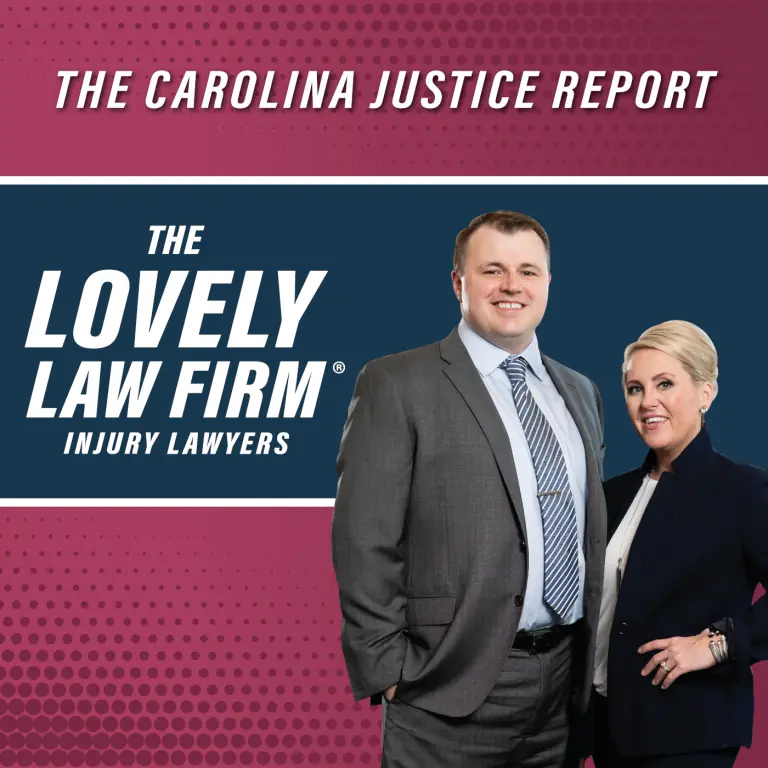People who are incarcerated in South Carolina lose many rights. However, they do not lose the right to personal safety. Jails and prisons are required to follow state and federal laws about the care of people who are incarcerated. Jails and prisons owe duties of care to inmates, including the duty to protect them from assaults and to not use excessive force against them.
Jails and prisons with staff who negligently allow inmates to be assaulted or who intentionally cause serious injuries or deaths may be liable to pay damages. If you are a low-level offender who has suffered serious injuries in a jail assault or have lost your loved one, you should consult with the experienced attorneys at The Lovely Law Firm in Myrtle Beach. Our attorneys can provide you with a fair assessment of your potential claim.
The rights of inmates
People who are incarcerated have several rights under state and federal laws. Some of the rights that inmates have while they are incarcerated include the following:
- To live under humane conditions
- Rights against sexual assault or rape
- Rights against racial discrimination and segregation
- Rights to complain about the conditions of incarceration
- Rights to adequate medical and mental health care
- Rights against physical abuse, asphyxiation, and excessive force
- Rights against being unnecessary endangerment
- Rights to receive adequate food and water
- Rights against physical and psychological torture
Prison guards have a duty to protect these rights of incarcerated people under their care. When they breach their duties, they can be sued for damages.
Limits to prisoners’ rights to litigation – The PLRA
Many things in jails and prisons are uncomfortable. Prisoners have to deal with tight quarters, insufficient exercise, subpar food, and other problematic conditions. However, these types of conditions are insufficient grounds for lawsuits. To prevent inmates from filing frivolous claims, Congress passed the Prison Litigation Reform Act in 1996. This law mandates that inmates must go through the administrative process within prisons before they can file lawsuits in court. All administrative remedies must be exhausted before a lawsuit can be filed to allow the problems to be remedied internally. The goal of the PLRA is to reduce the number of frivolous lawsuits and to decrease court caseloads.
Before inmates can sue the SCDC, all available administrative remedies must be exhausted. Inmates must wait to file their lawsuits while the prisons or jails attempt to correct the problem. If an inmate does not exhaust all of the available administrative remedies before filing a claim, the case may be dismissed by the court. There is also a rule within the PLRA about three dismissals. If courts dismiss three claims from an inmate, filing a subsequent claim will require the inmate to pay the filing fee up front.
In some cases, inmates retain their rights to file lawsuits. Incarcerated people have several rights that cannot be infringed by jails or prisons. These rights include a right against sexual assault, a right against racial discrimination and segregation, a right to complain, a right to adequate mental health and medical care, and the right to have a hearing before being moved to a mental health facility. Violations of these rights by prison guards or the SCDC that result in personal injury or death can result in grounds for litigation.
Section 1983 claims
Under 42 U.S.C. § 1983, people have the right to sue government officials and employees who violate their civil and constitutional rights. Governmental officials and employees can violate people’s constitutional rights in many ways. However, most lawsuits under § 1983 involve violations of people’s rights under the First, Fourth, or Eighth Amendments. Some of the ways that prisons and guards violate these rights include the following:
- Brutality and excessive force against jail inmates
- Lack of supervision by guards, resulting in an attack with serious injuries to or the wrongful death of an inmate
- Guards deliberately ignoring the medical needs of inmates
Qualified immunity in § 1983 claims
Government officials and employees that face § 1983 lawsuits often raise a defense called qualified immunity. This defense allows government employees and officials to avoid liability if the right that the official is accused of violating was not clearly established under federal law when the violation occurred. Courts disagree over what constitutes clearly established rights and might look to precedential cases. It can be difficult to prove the clear establishment of a right. Government defendants that lose their arguments for qualified immunity are also allowed to appeal the decision before going to trial. This means that a substantial amount of time can pass before a claim can proceed to trial.
Filing § 1983 claims
You cannot file a § 1983 claim as an inmate in South Carolina unless the following apply to you:
- All administrative remedies have been exhausted.
- You must submit certified copies of your trust fund account for the previous six months if you want to file your case without prepaying the court filing fees.
When you file a civil complaint, you must include a copy of your trust account for the last six months. If you were housed in several facilities during the six months before you file your complaint, you must include a copy of each of your trust accounts from the different facilities. You must also submit a sworn statement that all administrative remedies have been exhausted.
Statute of limitations for § 1983 personal injury lawsuits
Section 1983 claims for personal injury must be filed within the statute of limitations for personal injury cases in the state in which the abuse or attack occurred. In South Carolina, the personal injury statute of limitations is three years. This means that inmates who have suffered serious injuries because of a lack of supervision by guards or intentional abuse must be filed no later than three years from the date of the incident.
It is better to take action as soon as possible. In some cases, guards and other officials will alter records to make the victims appear as if they were responsible for their injuries. Waiting until the end of the three years will make it more difficult for your attorney to investigate and discover the truth.
Filing a wrongful death lawsuit
Lawsuits filed by family members because of the wrongful deaths of their loved ones in prisons or jails do not have to exhaust internal administrative processes. Instead, the family members may file lawsuits against those who are responsible without going through any administrative process. The PLRA does not apply to people who are not incarcerated. Similarly, inmates who have been paroled do not have to exhaust the administrative remedies before they can file personal injury lawsuits against the prisons.
Talk to the attorneys at The Lovely Law Firm
Lawsuits against jails or prisons are complex. You should retain an attorney for any claim against guards or prisons. If you have suffered serious injuries as an inmate or have lost your loved one, get help from an attorney at The Lovely Law Firm. Our attorneys handle claims involving attacks and abuse in jails and prisons. Contact us today by calling 843.839.4111 to schedule your case evaluation.







